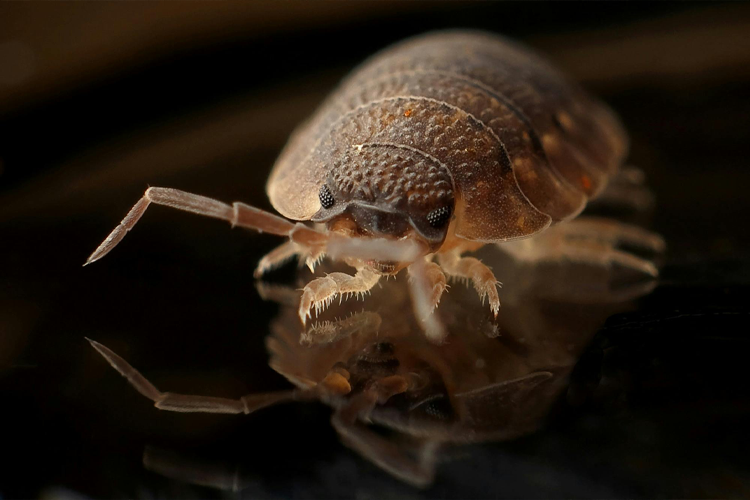Ideal Kings Bug Control Cincinnati: Premier Exterminators
Wiki Article
Kinds of Parasite Control: Which Method Is Right for Your Invasion?
When faced with an insect invasion, the selection of a proper approach for insect control is important in successfully managing the situation. From chemical therapies to biological services, there exists a variety of techniques that can be utilized to address various kinds of pests. Each technique features its own set of considerations and advantages, making the decision-making process a nuanced one. Recognizing the subtleties of each approach and reviewing their compatibility with the details insect problem available is necessary for accomplishing lasting success in pest monitoring. By checking out the numerous kinds of pest control approaches readily available, individuals can make educated choices tailored to their distinct situations, ensuring an extra lasting and reliable result in bug eradication.Chemical Insect Control
Chemical bug control involves the usage of synthetic or naturally obtained chemicals to manage and eliminate pest populaces properly. This approach is generally utilized in farming, forestry, and residential setups to combat a large range of parasites, consisting of rodents, insects, and weeds. Making use of chemical pesticides can provide quick and targeted remedies to pest invasions, making it a prominent selection for several people and businesses.One of the vital advantages of chemical parasite control is its capacity to promptly remove insects, decreasing the danger of damages to plants, property, and human wellness. By utilizing details chemicals that target specific insects, this method can effectively control infestations while reducing damage to beneficial organisms and the environment when used correctly.
Nonetheless, using chemical bug control likewise increases worries regarding possible negative effects on non-target types, water resources, and human health. It is important to adhere to safety and security guidelines, apply chemicals responsibly, and think about alternate bug control approaches to lessen these risks and guarantee lasting parasite management methods.
Biological Parasite Control
Biological bug control, also recognized as biocontrol, makes use of living microorganisms to reduce and handle insect populations normally. By making use of the bug's all-natural killers or virus, organic parasite control provides a eco friendly and sustainable service to pest management.
Mechanical Insect Control
Making use of physical and hand-operated approaches to take care of bug populations, mechanical bug control uses an alternate method that does not count on using living organisms or artificial chemicals. This technique entails making use of obstacles, traps, or various other tools to literally deter or get rid of parasites. By obstructing insect access points or establishing traps to capture them, mechanical insect control can successfully lower invasions without introducing chemicals into the setting.One common instance of mechanical pest control is using mesh displays on doors and windows to protect against pests from getting in structures. This simple yet effective method works as a physical barrier, maintaining bugs out while enabling for correct air flow. Furthermore, devices like mousetraps, fly swatters, and ultrasonic repellents fall under the mechanical bug control group.
While mechanical bug control methods can be labor-intensive and call for routine surveillance and upkeep, they provide a lasting and eco-friendly remedy for managing pest infestations. By incorporating different mechanical strategies, homeowner can produce a thorough parasite control strategy that minimizes reliance discover this info here on chemical pesticides.
Physical Bug Control

Some common physical insect control methods consist of using barriers such as nets or screens to stop parasite entry, traps to catch and eliminate bugs, and hand-picking to physically get rid of parasites from plants or frameworks. In addition, strategies like warmth therapies can be made use of to manage parasites like bed insects by increasing the temperature to degrees that are deadly to the insects.
Physical bug control is especially valuable in integrated insect management (IPM) approaches, where multiple pest control methods are integrated for efficient insect monitoring while minimizing the usage of chemicals. By using physical insect fire ants control strategies, people can effectively attend to parasite infestations with minimal environmental effect.
Integrated Pest Administration
When applying physical insect control methods as component of insect administration approaches, Integrated Insect Administration (IPM) emerges as a detailed technique that leverages different strategies to effectively regulate pest populaces. IPM concentrates on lasting avoidance of bugs via a mix of organic, cultural, physical, and chemical tools tailored to certain bug problems. By integrating numerous control strategies, IPM intends to minimize the risks linked with parasites while additionally minimizing dependence on chemical options.One key facet of IPM is the focus on tracking and examining pest populations to determine the most appropriate control methods. This aggressive approach enables very early treatment and targeted strategies, resulting in a lot more efficient insect management. Furthermore, IPM advertises read review environmentally friendly techniques by prioritizing non-chemical control techniques and just using pesticides as a last option.
Verdict

By utilizing the bug's all-natural predators or virus, organic bug control offers a ecologically friendly and sustainable solution to pest monitoring. - Kings Bed bug exterminator Cincinnati
Utilizing hand-operated and physical methods to manage parasite populations, mechanical parasite control uses an alternative method that does not rely on the use of living organisms or artificial chemicals.A reliable strategy to managing parasite populations without counting on chemical or biological approaches includes the usage of physical pest control methods.When carrying out physical parasite control methods as part of pest monitoring methods, Integrated Pest Management (IPM) arises as a comprehensive technique that leverages different techniques to efficiently regulate pest populations. Chemical bug control entails the use of chemicals, biological pest control makes use of all-natural killers, mechanical parasite control entails physical obstacles, physical parasite control consists of trapping or removing parasites, and integrated insect monitoring incorporates several approaches for a holistic strategy to pest control.
Report this wiki page